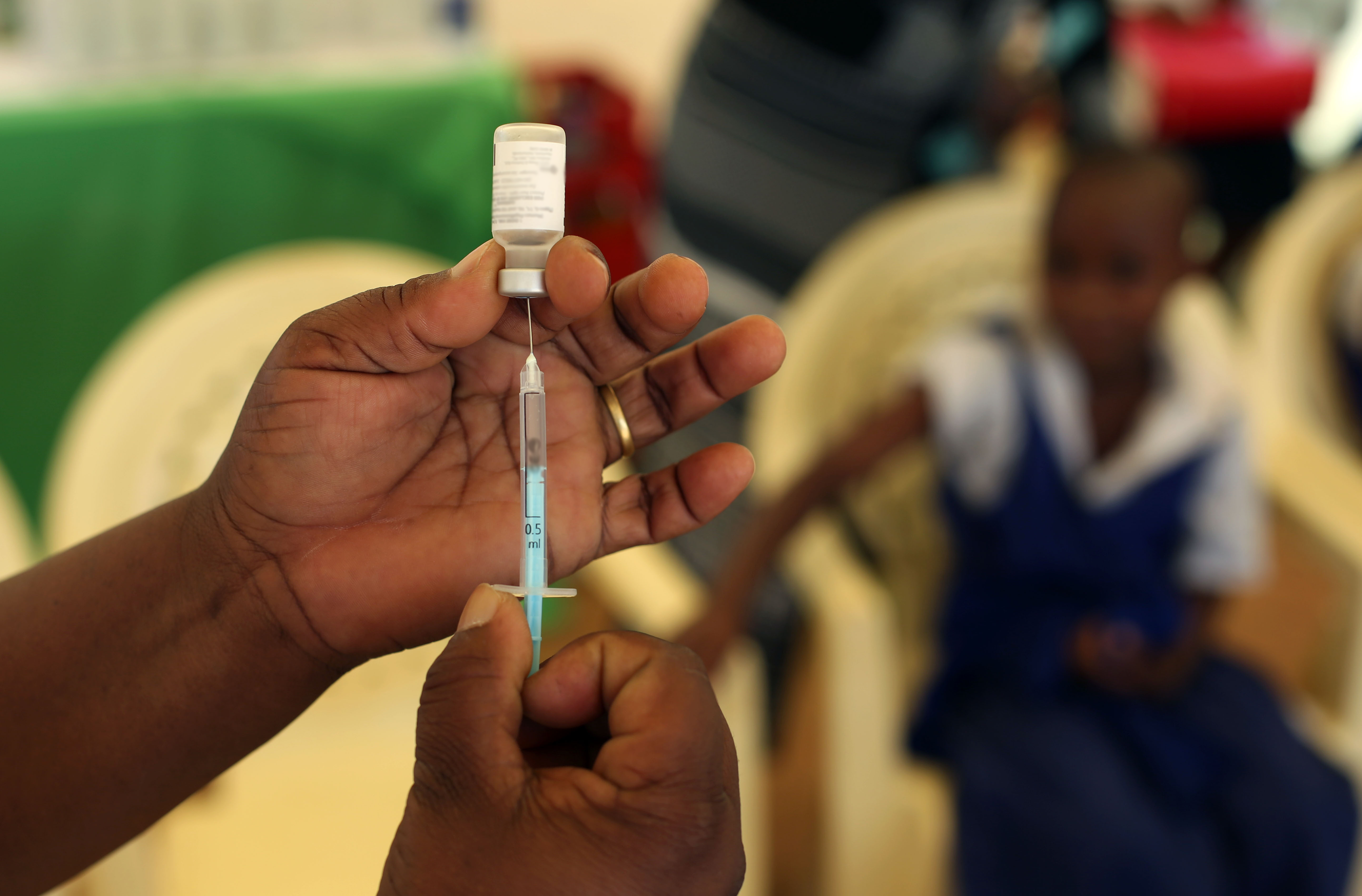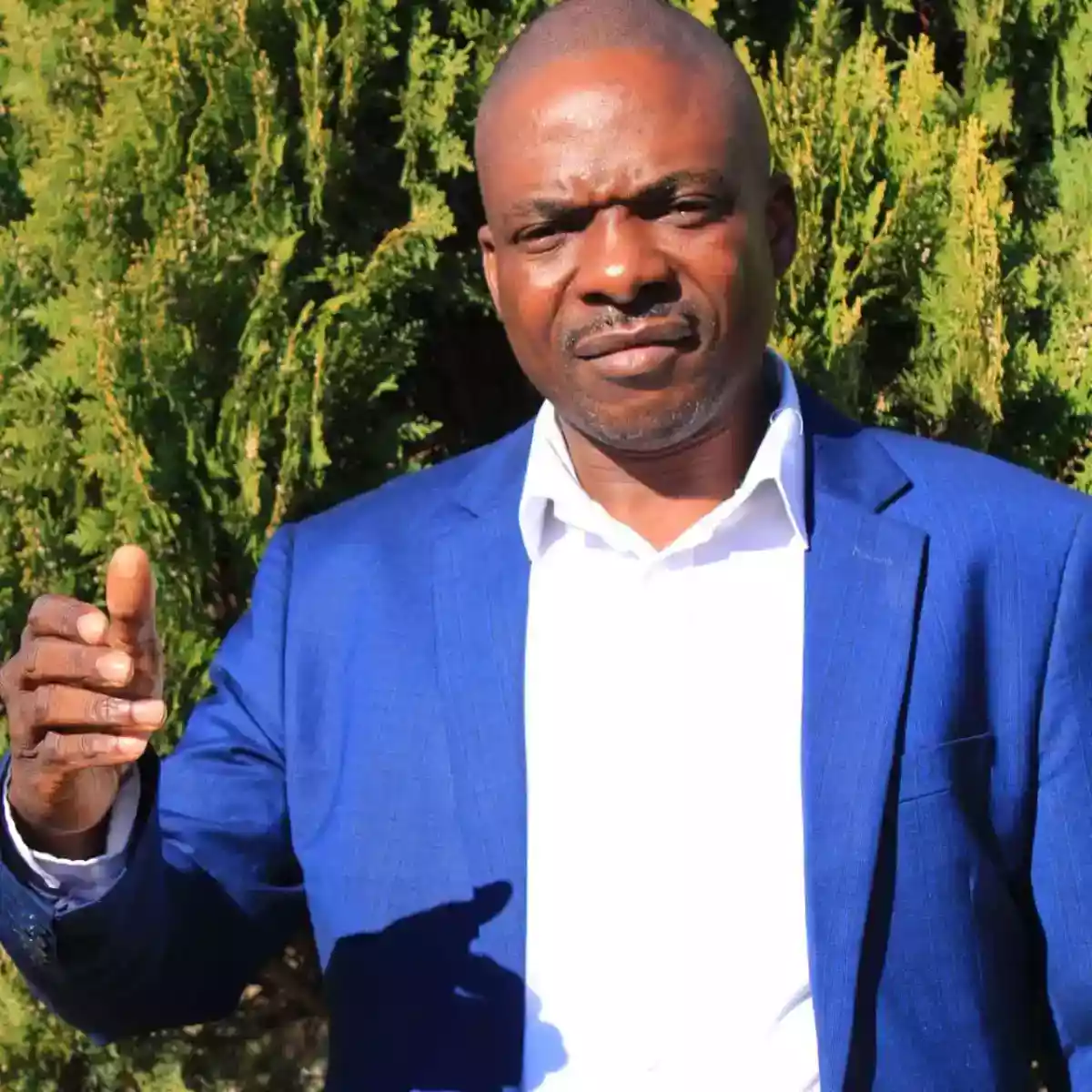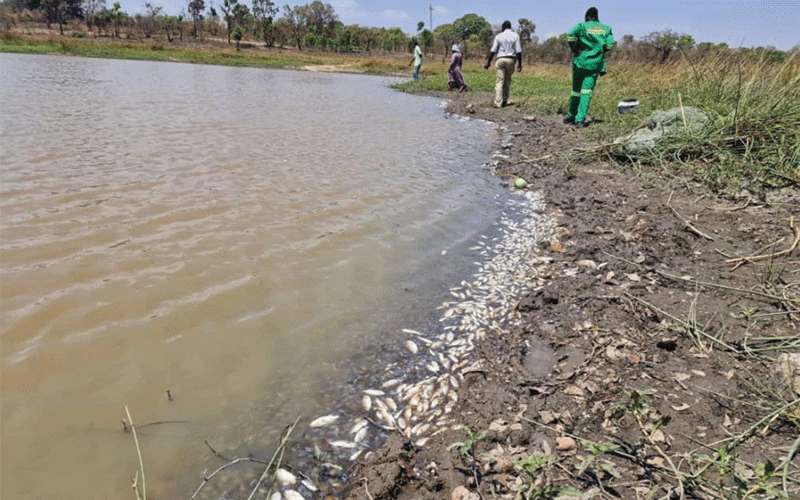
WHEN COVID-19 hit Zimbabwe three years ago, Yolanda’s mother wanted to have her daughter vaccinated with human papillomavirus (HPV) vaccine.
But, aged 13 at the time, Yolanda missed the critical vaccine after all non-essential health services across Zimbabwe were disrupted by the global pandemic coronavirus.
The 16-year-old, who preferred just her first name, feels her life is at risk as she is vulnerable to diseases such as cervical cancer.
“I am really worried. Cervical cancer is deadly,” Yolanda, a secondary schoolgirl from Honde Valley about 90km from Mutare tells NewsDay.
Zimbabwe rolled out the HPV vaccination programme targeting girls aged 10 to 14 years reaching more than 800 000 girls.
HPV is a vaccine that provides protection against several types of cancers, including cervical, the most common one in women.
The HPV vaccines, which were added to Zimbabwe’s routine immunisation programme, are funded by the government and the Global Alliance for Vaccines and Immunisation.
The aim was to reduce the southern African nation’s rise in cervical cancer rates which were high at the time with more than 2 000 women diagnosed with cervical cancer every year while over 1 400 people die as a result.
- Young entrepreneur dreams big
- Chibuku NeShamwari holds onto ethos of culture
- Health talk: Be wary of measles, its a deadly disease
- Macheso, Dhewa inspired me: Chinembiri
Keep Reading
About 99% of cervical cancer cases are associated with HPV, according to the Health and Child Care ministry. Unicef, the World Health Organisation (WHO) and the Health ministry led the HPV vaccination campaign.
With the authorities in Zimbabwe putting the country on lockdown in 2020 to curb the spread of COVID-19, health services were disputed.
Young girls like Yolanda could not get services such as the HPV vaccine.
Not all clinics administer HPV vaccines in Zimbabwe but only selected hospitals with maternity facilities. Screening, diagnosis and treatment services are predominantly limited to larger cities. Schools, where most of these vaccines are administered to girls, were forced to close because of the respiratory disease.
In 2021, the HPV vaccine coverage was at 67%, a 24% drop from 91% in 2019.
A Unicef’s State of the World’s Children 2023 regional brief for Eastern and Southern Africa, attributes the drop in HPV coverage to COVID-19 which disrupted the routine immunisation programmes in the country including the HPV vaccination drive.
“Over the course of the pandemic, the world lost more than a quarter of global coverage of HPV vaccination,” part of the report read.
“That large fall reflected in part the closure of schools, where many children receive their vaccinations.”
Around four million women aged 15 years and older are at risk of developing cervical cancer in Zimbabwe.
The HPV vaccine works by stimulating the body’s immune system to produce antibodies against the human papillomavirus, according to Nigeria’s National Primary Health Care Development Agency.
When a person receives the vaccine, their immune system recognises the viral proteins in the vaccine and produces a response that provides protection against HPV.
Over the years, the HPV has proved it is highly effective at preventing infections from the HPV types covered by the vaccine.
It provides strong protection against cervical cancer and some other types of HPV-related cancers including genital warts in both males and females.
Lovemore Makurirofa, a research and information officer at the Cancer Association of Zimbabwe, says during the peak of COVID-19, all the non-emergency health programmes were stopped.
“The issue of administering HPV vaccines as much as it is an important cancer prevention procedure involved contact between those who are administering the vaccine and the community. Because of the lockdown and other COVID-19 prevention mechanisms such as avoiding contact, these programmes were suspended,” he says.
“We know that HPV vaccination is an important programme in cancer prevention. In Zimbabwe cervical cancer alone constitutes a third of the national cancer bargain and it is also killing a lot of women in Zimbabwe. As a result vaccination of the girls is important but it was impacted by COVID-19.”
Some girls and parents are now hesitant about vaccines as a result of misinformation, disinformation and myths campaigns against coronavirus, particularly on social media. Some traditional and religious beliefs that are anti-vaccine have also added to the problem.
For instance, there have been messages falsely claiming that Africans are being used as guinea pigs to test the efficacy of COVID-19 vaccines.
The fact is COVID-19 vaccines have been tested in trials globally including in Western nations and in both South and North America.
This has worsened the situation of immunisation programmes, including the one for HPV vaccines.
Kudzai, a 14-year-old girl from Honde Valley, is hesitant about the HPV vaccine.
“I am afraid of the side effects. My mother told me not to participate. She said if they come to our school, I should not consent to it,” says Kudazi, who also preferred only her first name.
Another challenge is that HPV is a sexually transmitted infection and, as such, carries a high degree of social stigma. Young girls and women often fail to seek medical advice until it is too late.
Simbarashe James Tafirenyika, president of the Zimbabwe Urban and Rural Council Nurses Workers Union, says awareness campaigns can help to debunk myths and misconceptions around vaccines in the country.
“Now since COVID-19 has been lifted, girls can be conscientised through awareness campaigns to be vaccinated with HPV vaccines,” he says.
Just like any other vaccine, the HPV vaccine may cause non-serious side effects, which are temporary, according to Nigeria’s health agency.
Common side effects include pain, redness, or swelling at the injection site, as well as fever, headache, fatigue and muscle or joint pain.
Zimbabwe’s health sector has been deteriorating for years with shortages of basic drugs like painkillers prevalent.
It is worse for people diagnosed with cancer as there are shortages of equipment needed for screening and treatment.
“We have a high burden of communicable, non-communicable, neglected tropical diseases and high HIV sero-prevalence, all of which require us to utilise all the ammunition available to prevent, treat and manage,” says Itai Rusike, the executive director for Community Working Group on Health.
“The current high cervical cancer burden, fuelled by the ongoing HIV epidemic, demands us to employ strategies that provide adequate protection for our population, especially the young.”
He says the current situation is such that the capacity of public health facilities to screen, diagnose and manage non-communicable diseases like cancer through the training of healthcare workers, procurement of diagnostic equipment and consumables as well as advocacy towards healthy lifestyles has declined to all-time low levels and remains weak in this challenged health delivery system.
Rusike says Zimbabwe has failed to stabilise the brain drain in health sector for a number of decades, and recently, some clinics in the capital city have closed for lack of staff, sound management decisions and finances.
Zimbabwe’s health sector is underfunded, with public health spending accounting for a relatively small proportion of total government spending.
Healthcare workers have been migrating to countries such as the United Kingdom and the United States to seek greener pastures as salaries in Zimbabwe have remained stagnant amid high inflation and poor working conditions.
The health sector allocation stood at 11,2% in 2023 below the Abuja Declaration target of 15% allocation of the total budget to the health sector.
Health ministry spokesperson Donald Mujiri promised to respond to questions sent to him, but had not done so by the time of going to print.
However, Makurirofa says HPV vaccination is an area Zimbabwe should improve.
“We support the vaccination of girls to prevent cervical cancer because it is affecting many women in Zimbabwe,” he says.
This report was supported by the International Women’s Media Foundation’s Global Health Reporting Initiative: Vaccines and Immunisation in Africa, in partnership with Sabin Vaccine Institute.










